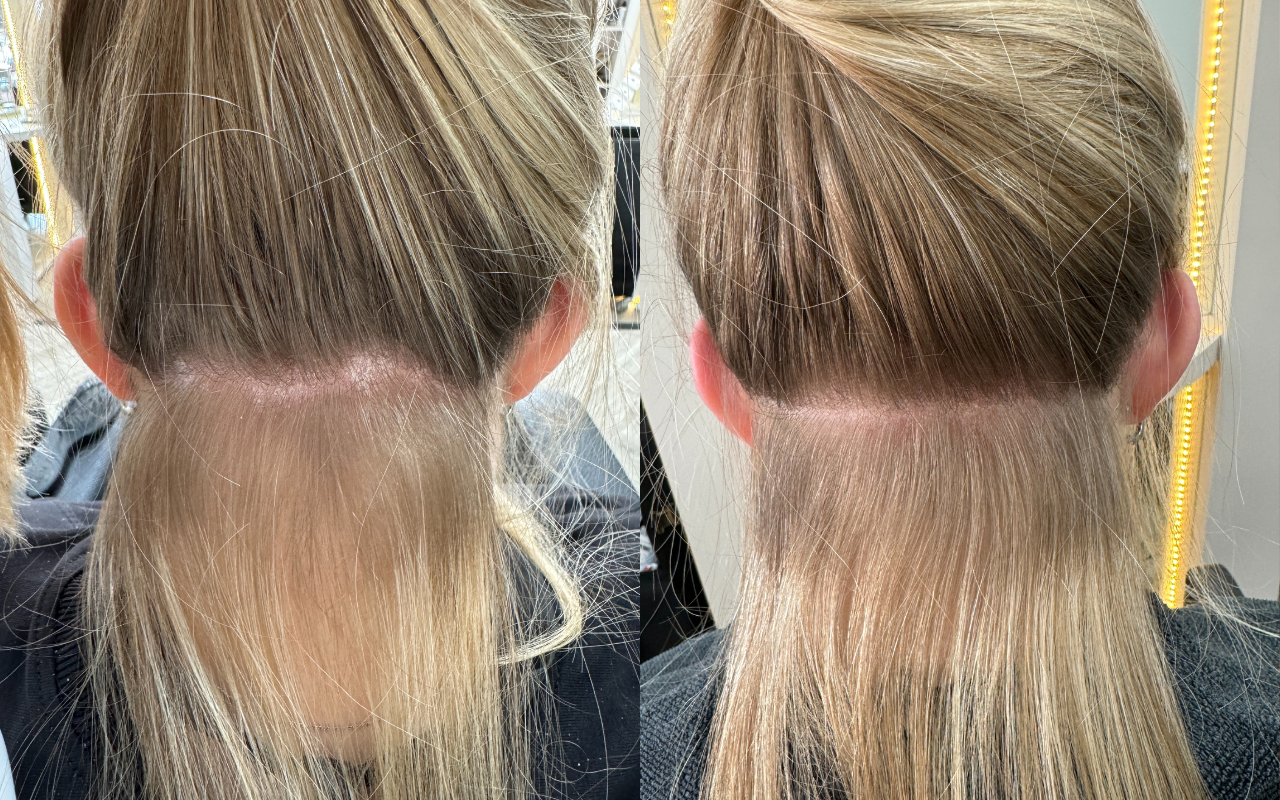Hormonal Changes and Your Hair Growth Cycle:
You’ve heard about how stress, having an unbalanced diet and cosmetic hair products can affect your hair growth cycle. Paired with this, you’ve learned ways to combat the adverse effects they can have on your hair. There are numerous articles about hair growth and just as many companies trying to sell their ideas about how they can help you. But I want you to remember that you own your hair growth cycle. It’s unique to you. So, it’s important to understand your own dilemmas, identify where the issue lies and how to overcome this sooner than later. Today, I’ll be talking to you about how Hormonal imbalances can be a contributing factor to hair loss. And as always, reassuring you that it is completely normal and salvageable.
Hormonal changes
There are different types of hormonal changes that can happen in your body. For instance, puberty, pregnancy, postpartum (breastfeeding) and menopause. All these can cause the levels of oestrogen and progesterone to drop, causing the hair to grow slower and thinner.
Vitamin and Mineral deficiencies
It’s no new news that a good diet is vital to lead a healthy lifestyle, both physically and mentally. But as you age, your body starts to crave a well-balanced diet more than ever. That’s because ageing is linked to various changes, including vitamin and mineral deficiencies, decreased quality of life and poor health outcomes. Some common deficiencies include B vitamins, calcium and Vitamin D The good news is, there’s a variety of ways you can prevent deficiencies and other age-related changes. But what’s the most important thing? Nutritious food paired with the right supplements.
Give your body what it’s craving
B Vitamins, Vitamin C, Magnesium, Vitamin D and Silica are key vitamins and minerals our body needs for healthy hair. Life is busy: long work hours, family commitments, university deadlines, school runs… you name it. This makes it challenging for us to incorporate all the right nutrients into our diets. But that’s where supplements come in. Having food supplements can really boost your daily nutrition intake. Remember though, supplements will support, not replace.
Silica is also an important one. As we age, our body stops producing Silica which is vital for healthy hair and nails. Where there’s no evidence of hair growth with Silica, it is a key nutrient compound for collagen production and stronger and thicker strands. Silica can be found in Bamboo extract, a key ingredient in our Tender Love and Hair supplement.

Types of hormonal changes:
For us women, our hair forms much of our identity whether we have hair or not, we have full reign over it: we cut it how we like it, style it how we like it and switch it up whenever we fancy. It is an expression of ourselves, our individuality and our appearance. Hair loss can make us feel less in control, knock our confidence and this can affect our self-esteem. But don’t worry because there are many ways you can start to take charge and own your journey.
1. Menopause
The average age of the menopause is around fifty. Some women notice early symptoms leading up to this age. This is also known as perimenopause. During menopause, women experience higher levels of testosterone which causes hair to become dry and brittle. This often causes hair loss around the temples which is more common in men. Some women may even experience more profound hair loss, with thinning at the crown of the head and just general hair thinning all over the head. We start to notice more hair fall in the shower, our hairbrush and our pillow.
A message from our Hair Expert, Kieran Tudor:

“I always say that prevention is better than cure. If you start seeing early signs during perimenopause, it is best to support your diet with a food supplement to help even out what your body is producing naturally. This period can cause emotional stress so, it’s also important to not neglect your self care routine.”
2. Pregnancy/postpartum
Pregnancy can cause stress levels to rise which leads to stress induced hair loss, also known as Telogen Effluvium. During the first trimester, hormones shift dramatically to support baby growth, causing stress. This puts your hair growth cycle into the “resting” (Telogen) phase of the hair cycle. Resulting in increased hair loss. So, rather than losing 100 hairs a day, you may lose 200 hairs a day.
Our hair is the last part of our body to receive nutrients but, the first to be withheld from it when we are stressed. Luckily, it’s never too late to take actions to prevent it. Make an effort to stay on top of your water and food intake, eat a variety of nutrient-rich foods and boost this with a supplement. It can be overwhelming to start all at once These things combined can help you fight deficiencies and stay healthy as you get older.
Thanks so much for dropping by! I’d love to hear your thoughts. What’s one step in your haircare you never skip? Have any questions? Email us at hello@wearecentred.com



